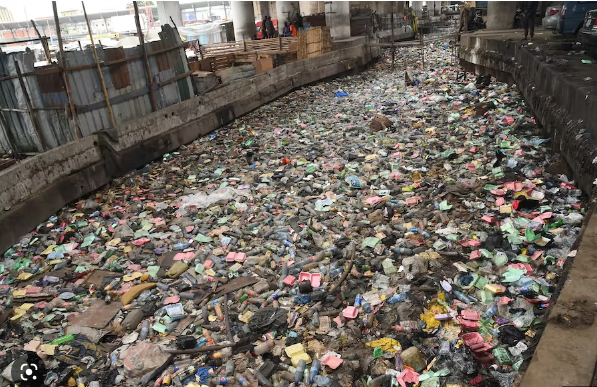FG Assures Nigerians that Measures are in Place to Address Plastic Pollution
CHIGOZIE AMADI
The federal government has assured Nigerians that they need not be afraid of plastic pollution as needed measures are emplaced towards addressing the menace of plastic waste in the country.
The National Plastic Action Partnership (NPAP) had posited that by 2030, plastic waste is expected to double to 165 million tonnes in African countries.
According to NPAP, most of these will be in Egypt, Nigeria, South Africa, Algeria, Morrocco and Tunisia, calling for concerted and whole value chain approaches to addressing and curbing plastic pollution in Africa.
Also, reports have it that the world’s oceans contain an estimated 100 million metric tonnes of plastic with about 90% of this quantity originating from land-based sources.
Scientific findings also state the world’s marine life is endangered through the exposure of nanoparticles of ingested plastics which penetrate through the blood-brain barrier of seabirds, this is seen as quite alarming as every human being on the face of the earth has a connection with plastics in one way or the other.
Given the assurance of Nigerians’ safety from expected plastic pollution, on Wednesday in Abuja, the Minister of State for Environment, Dr. Iziaq Salako, at the stakeholders meeting on the Draft National Guidelines for the Implementation of the Extended Producer Responsibility (EPR) for (Plastic) Packaging, said because of the threats the federal government “is therefore putting in place measures towards addressing the menace of plastic waste from our environment, by way of developing a Sector-Specific National Guidelines for the implementation of the up-coming Plastic Waste Control Regulations under the Extended Producer Responsibility (EPR) Programme.”
The minister, represented by a director in the ministry, Dr. Ahmadu Jibrin,
said the federal government through the National Environmental Standards and Regulations (NESREA), responding to its global commitment to the Basel Convention.
He noted that the primary purpose of this draft national guidelines when in force, is to provide far-reaching guidelines that will serve as a road map to all stakeholders in the plastic packaging value chain for the effective implementation of the EPR Programme as well as clearly defining the various obligations of all sector stakeholders in Nigeria.
He disclosed that: “This document is also poised to amongst others, aid the establishment of a Plastic Packaging Registry in the country which is very germane, align with circular economy principles and sustainability efforts ultimately galvanizing towards the overall elimination of plastic pollution and the reduction of the adverse impacts of Single-Use Plastics (SUPs) from our environment.
“It is thus expected that this draft document has been reviewed by the stakeholders in the 36 states and FCT by key stakeholders, and the submitted comments had been incorporated accordingly.”
He further said: “We are here today to finalize the review comments towards birthing a robust instrument that will stand the test of time in the management of the plastic packaging, plastic waste and plastic pollution across their life cycle.”
In his remarks, the Director General of NESREA, Dr. Innocent Barikor, said: “Today, we stand at a critical juncture in our collective efforts to address the pressing challenges posed by plastic waste in our environment. The guidelines we are discussing are not just a regulatory framework; they represent a commitment to sustainable development, environmental stewardship, and the health of our communities.”
He added: “As we are all aware, the proliferation of plastic packaging ((Bottles (PET, PP or HDPE/PS), flexible mono-layer materials, rigid mono-layer materials, multi-layer and multi-material plastics) has led to significant environmental degradation, affecting our ecosystems, wildlife, and ultimately, human health. The need for a robust and effective waste management system has never been more urgent.
“The EPR Programme is designed to shift the responsibility of waste management from local authorities and taxpayers to the producers of plastic packaging. This innovative approach encourages manufacturers to take responsibility for the entire lifecycle of their products, from design to disposal.”
He volunteered that: “In these draft national guidelines, you will find detailed outlines of the key responsibilities of each stakeholder group, as well as specific targets for collection and recycling.
“These targets are not merely aspirational; they are essential benchmarks that will guide our progress and hold us accountable. It is crucial that we engage in open dialogue and consultation to refine these targets based on stakeholder input and current data.”
























